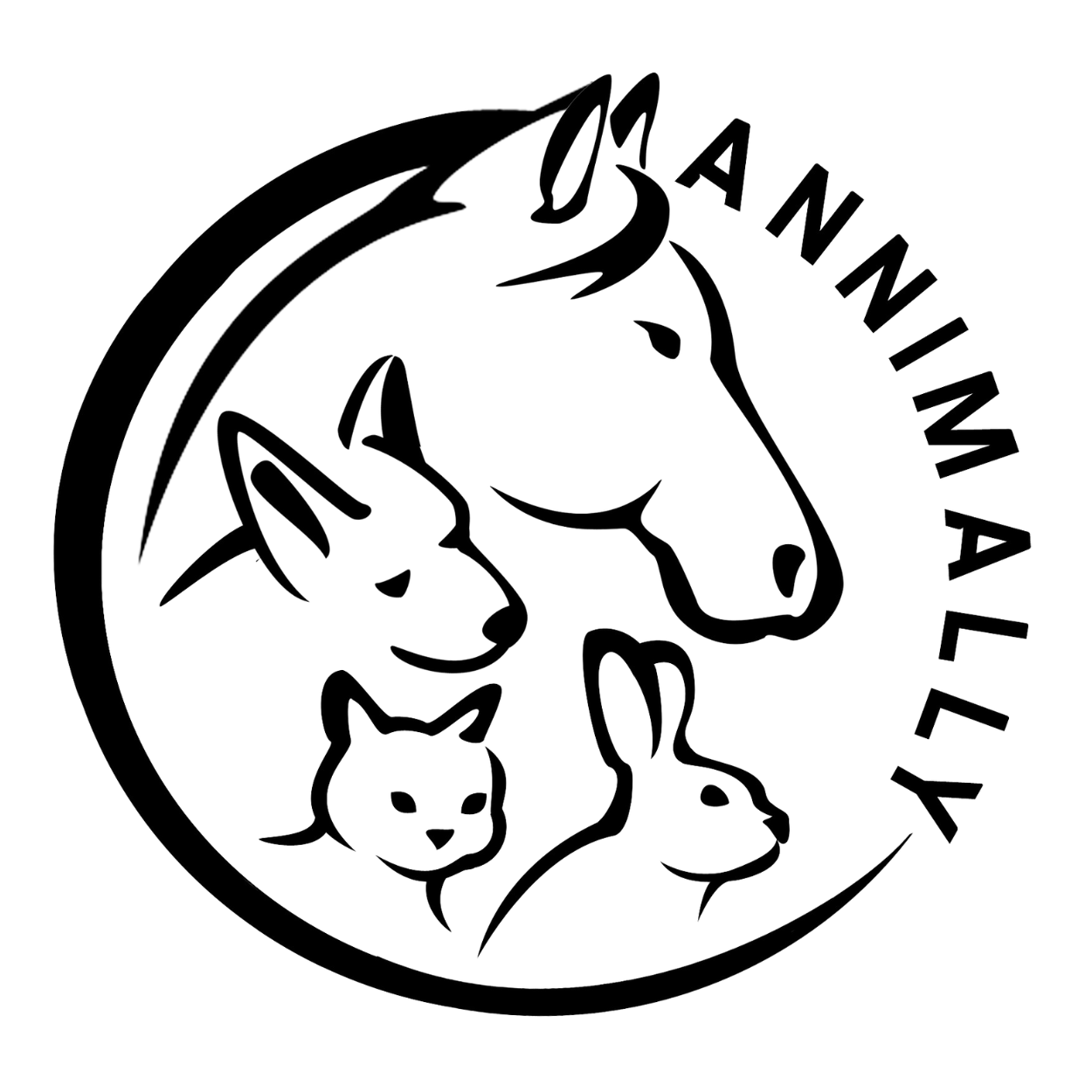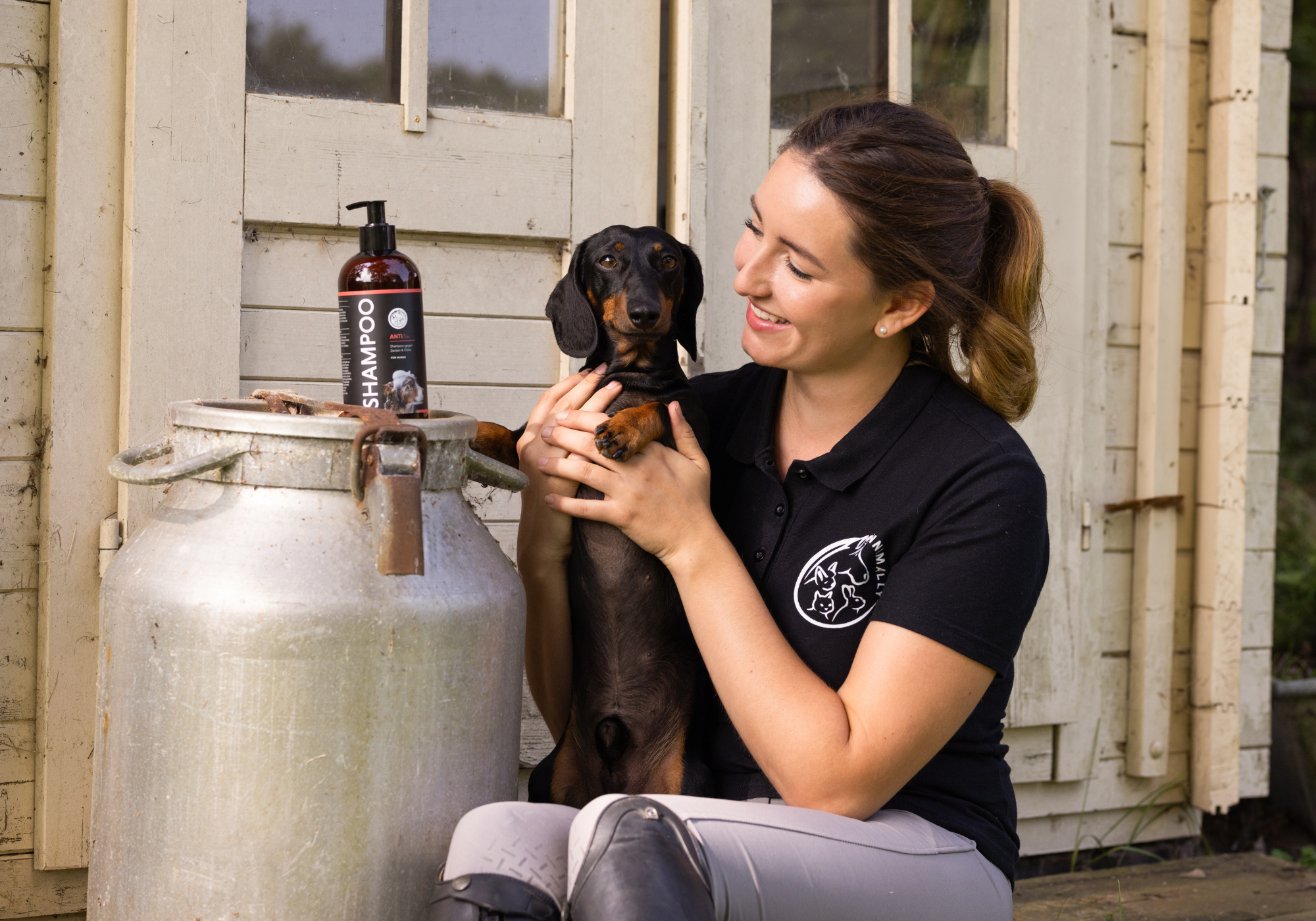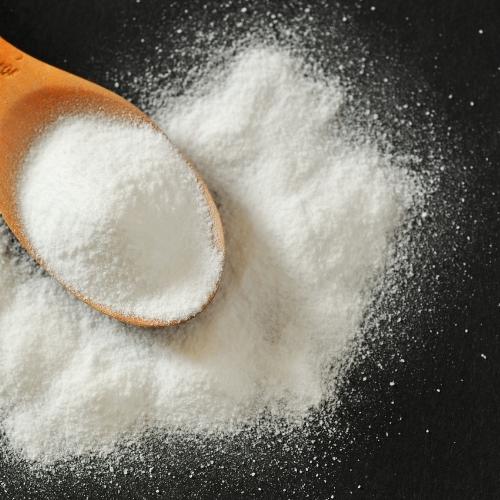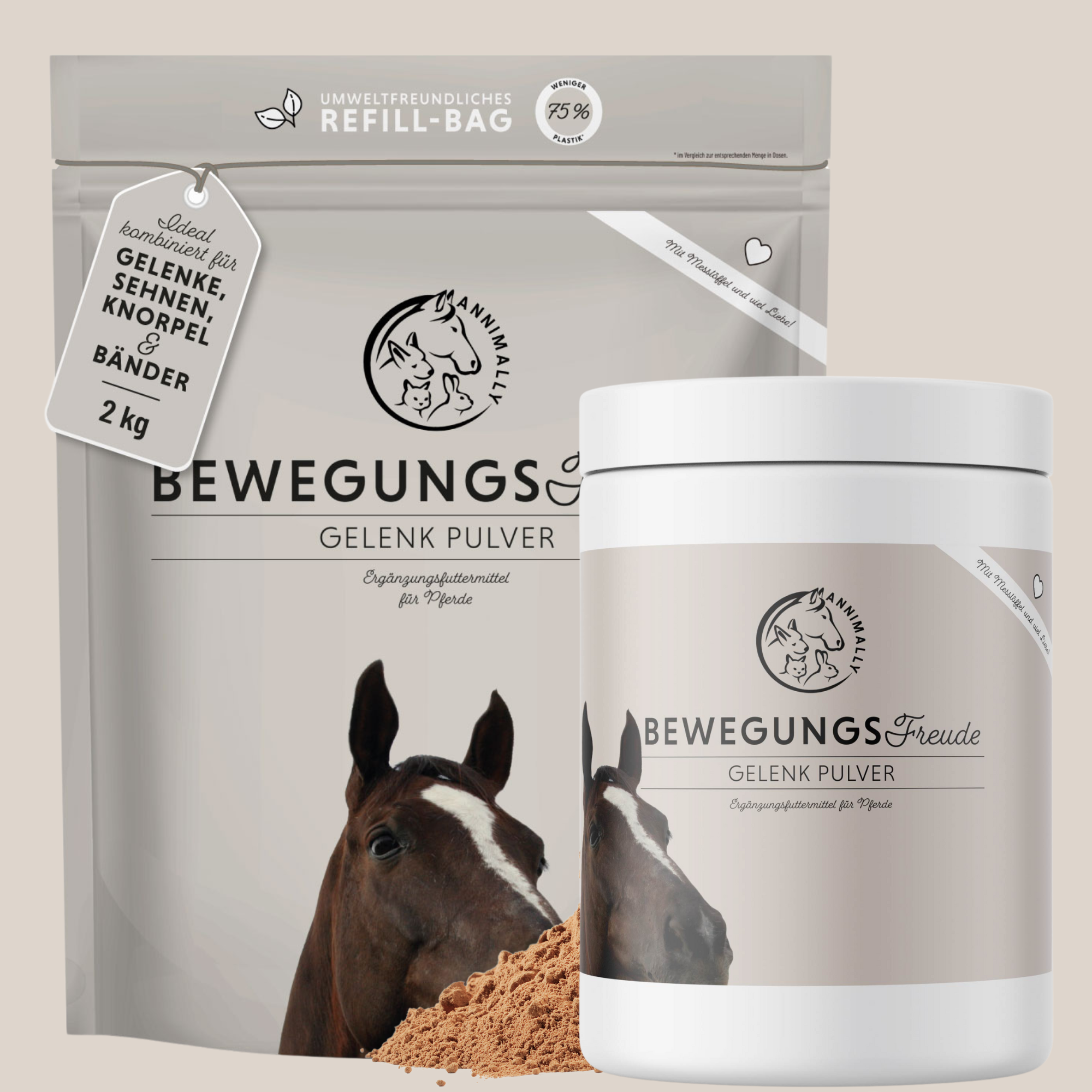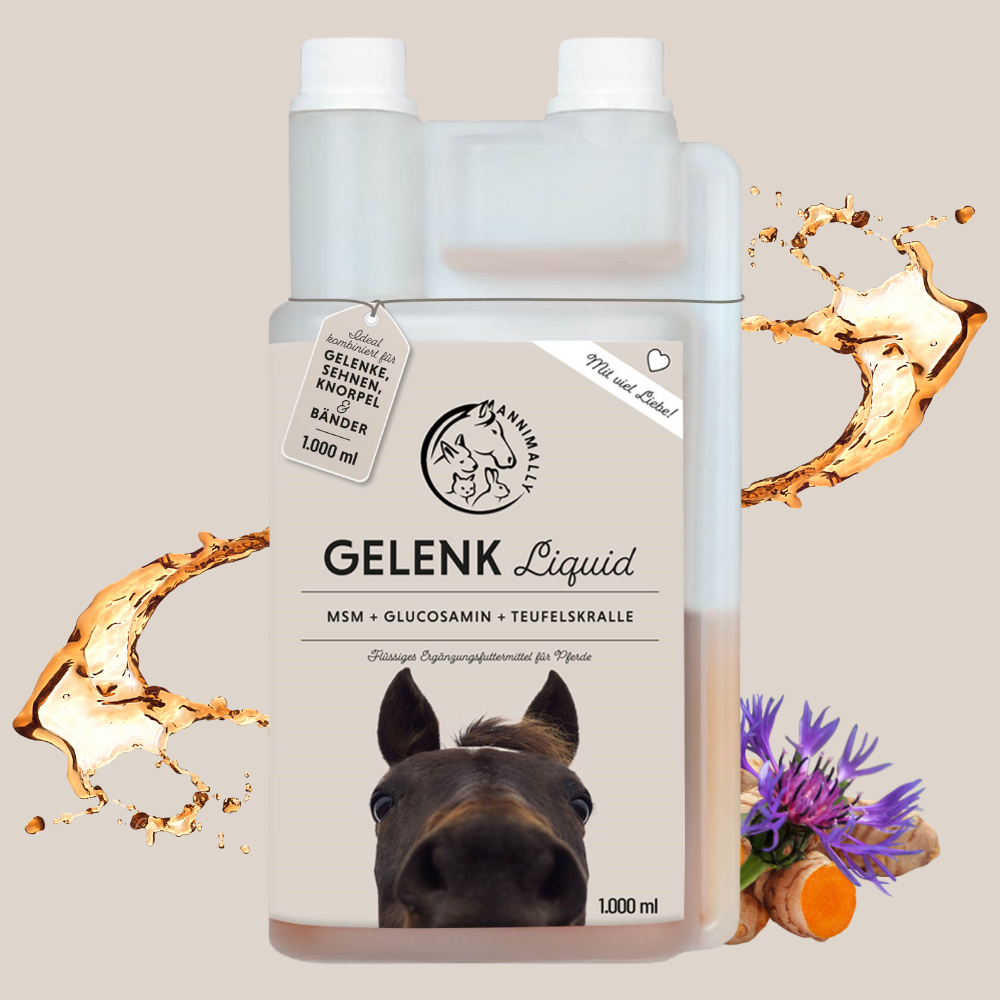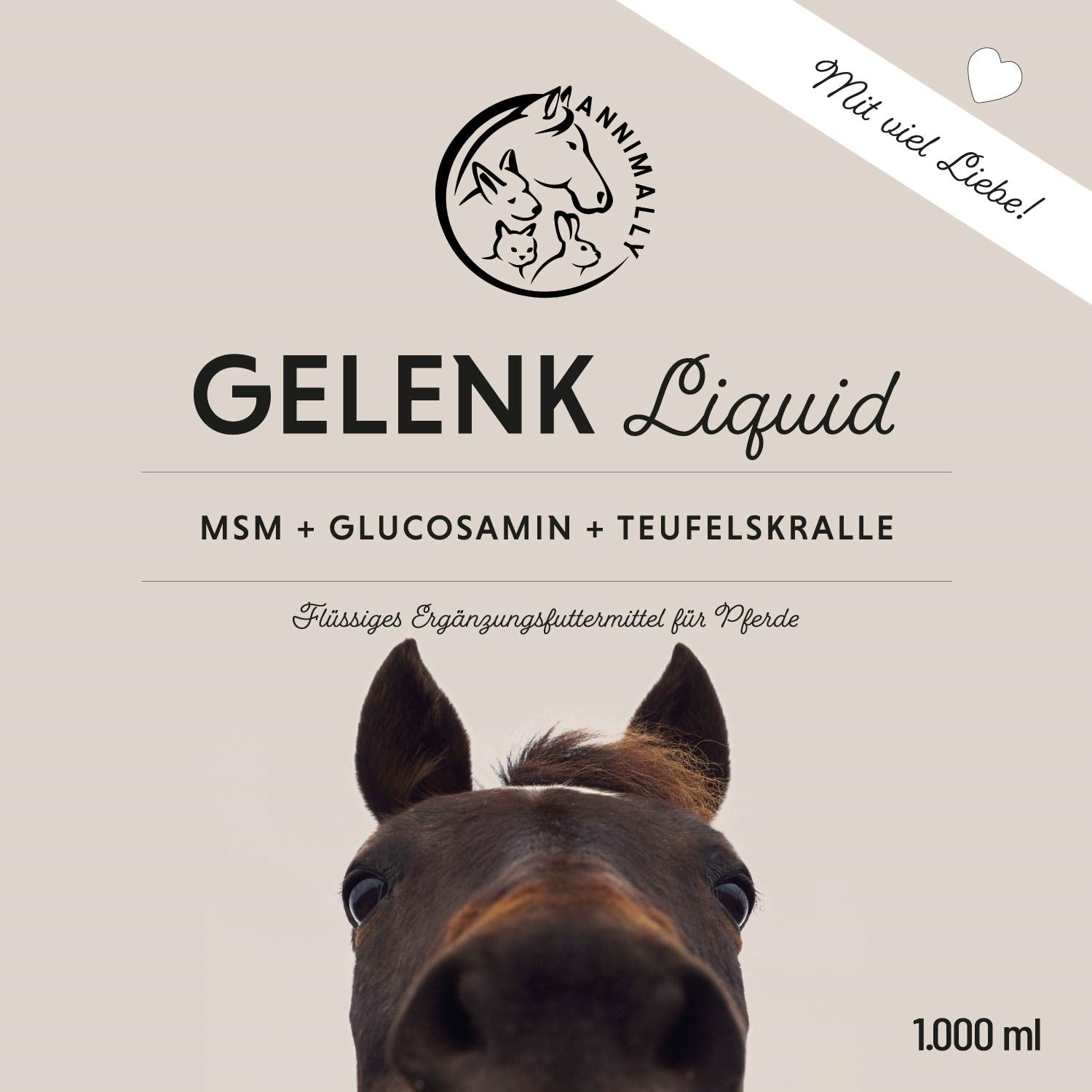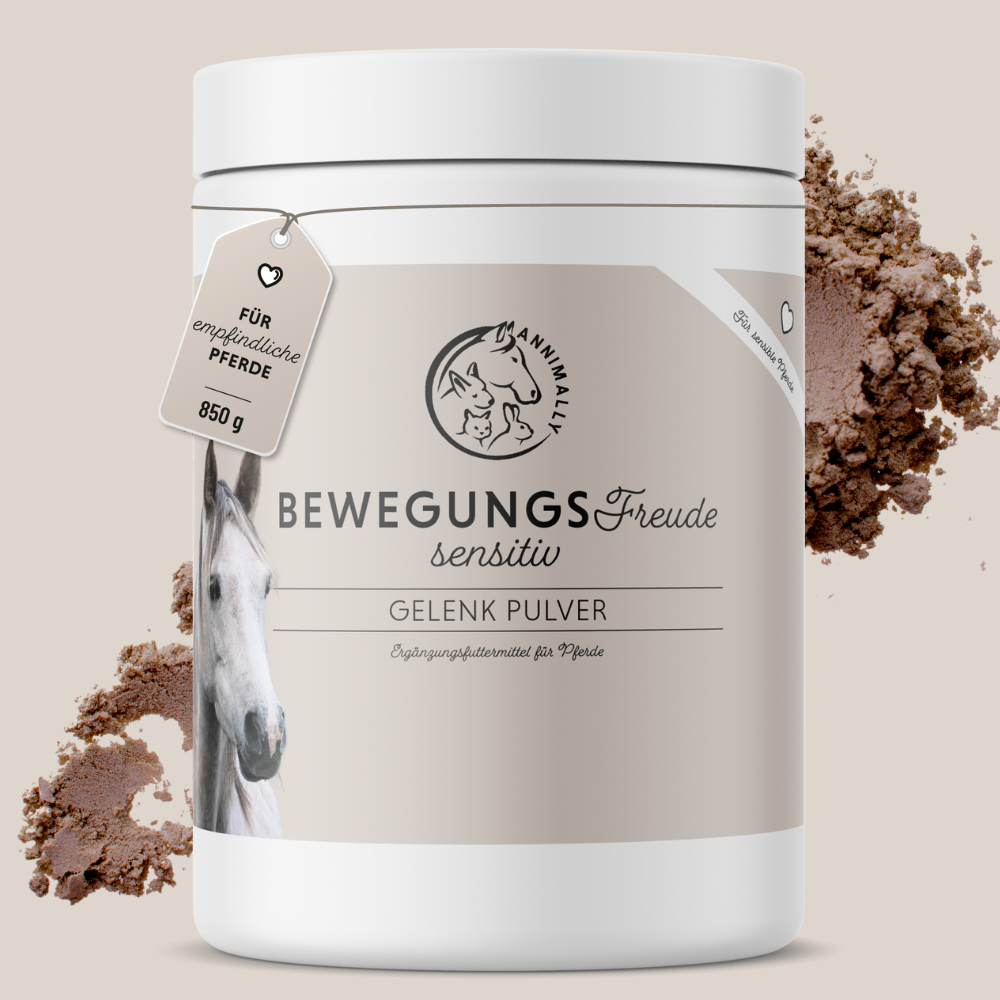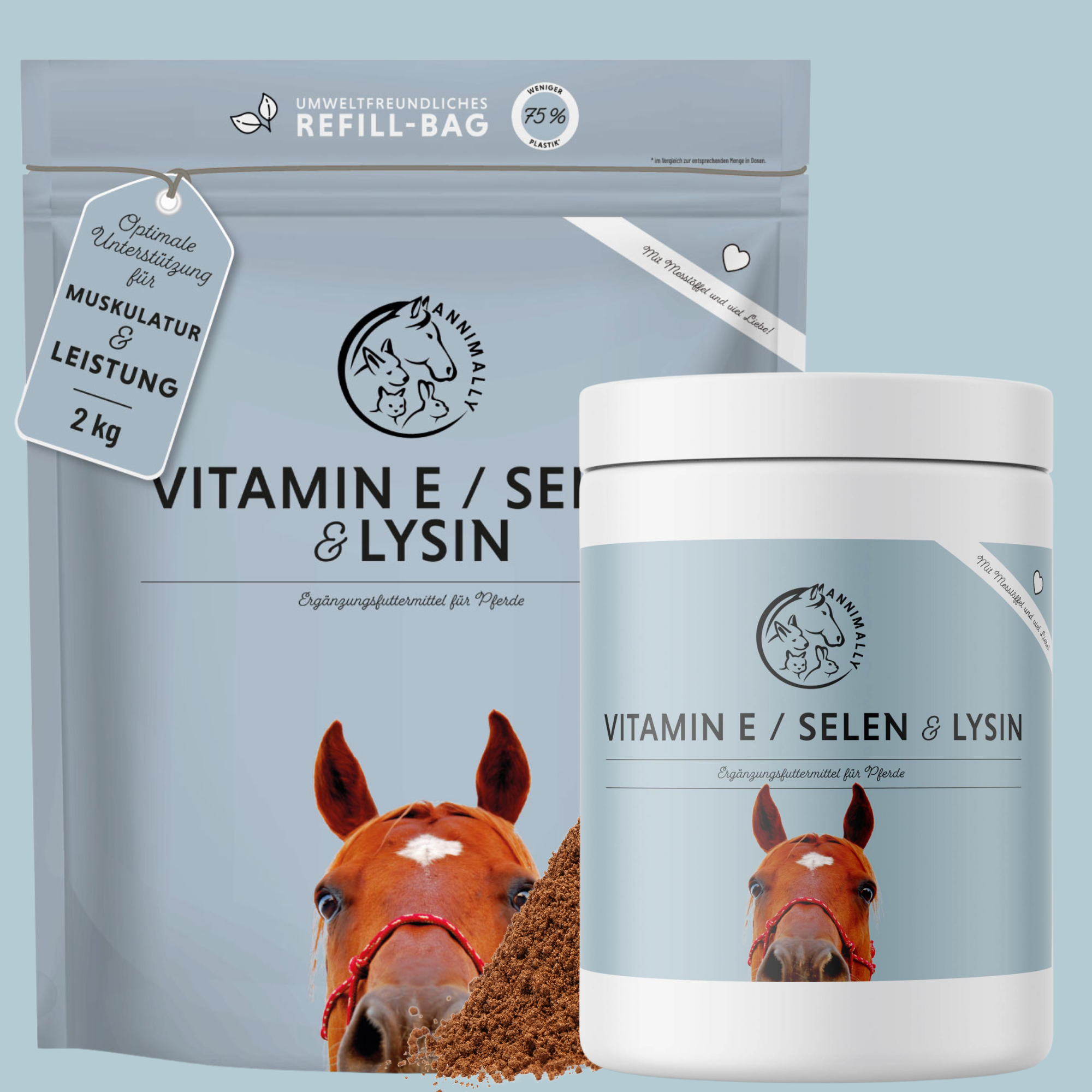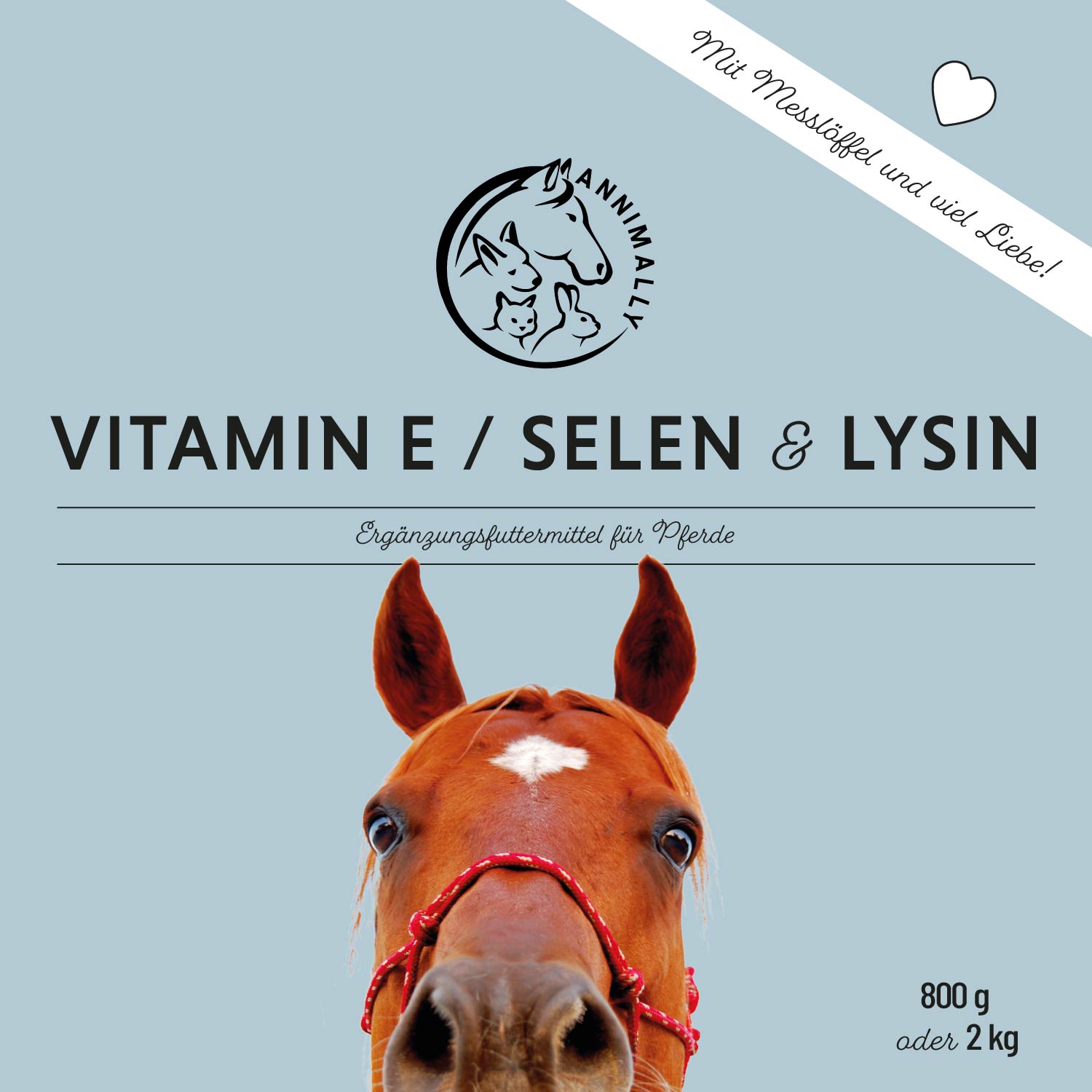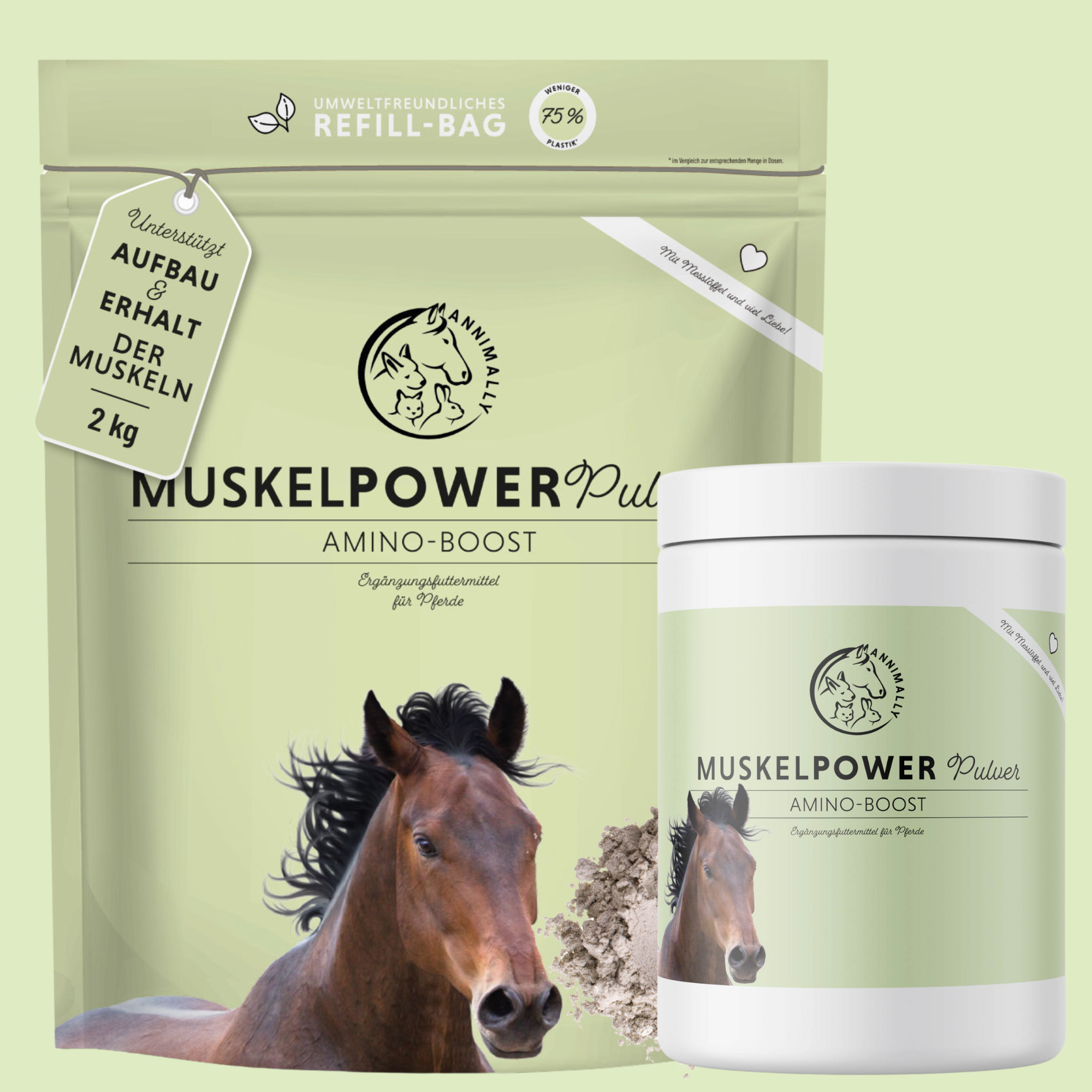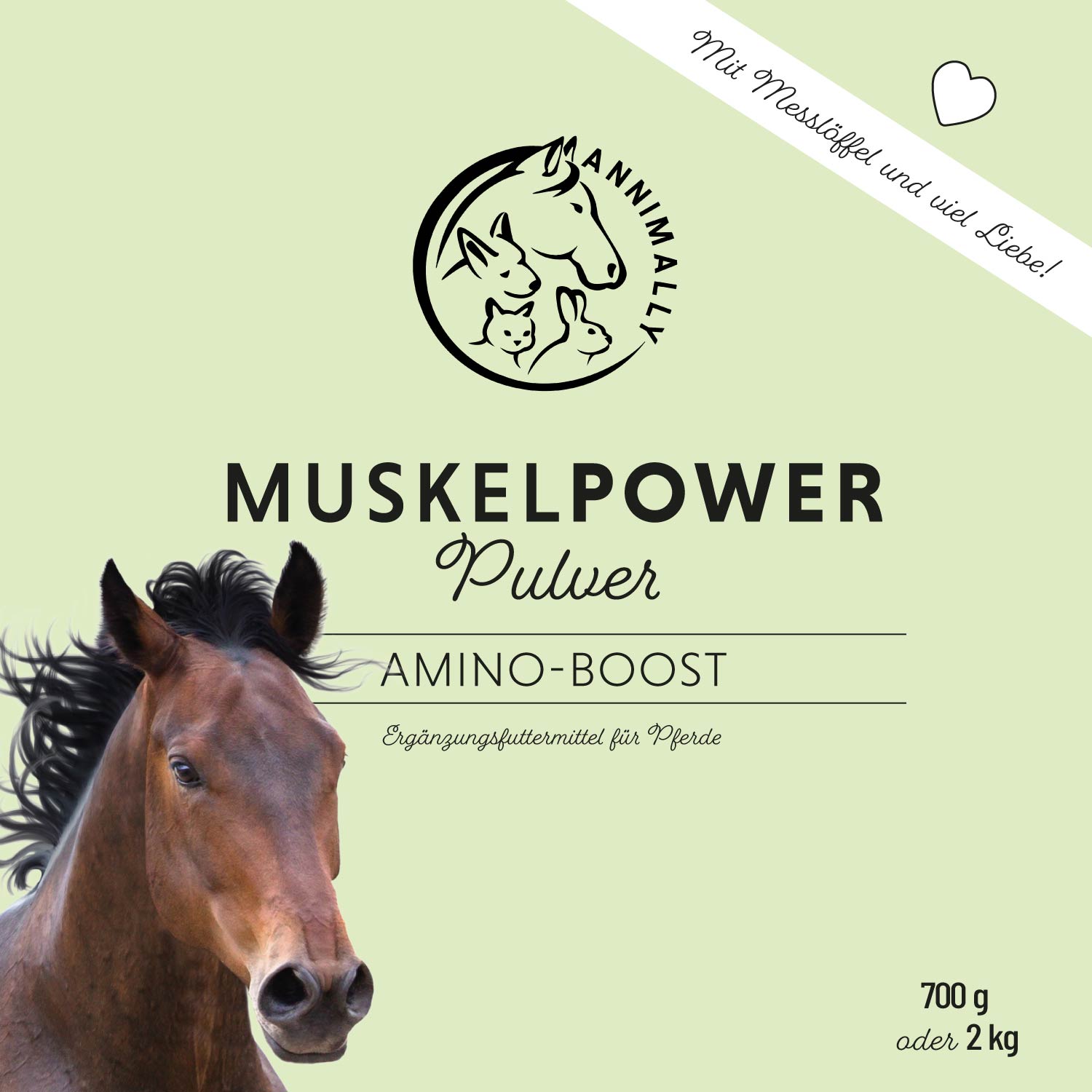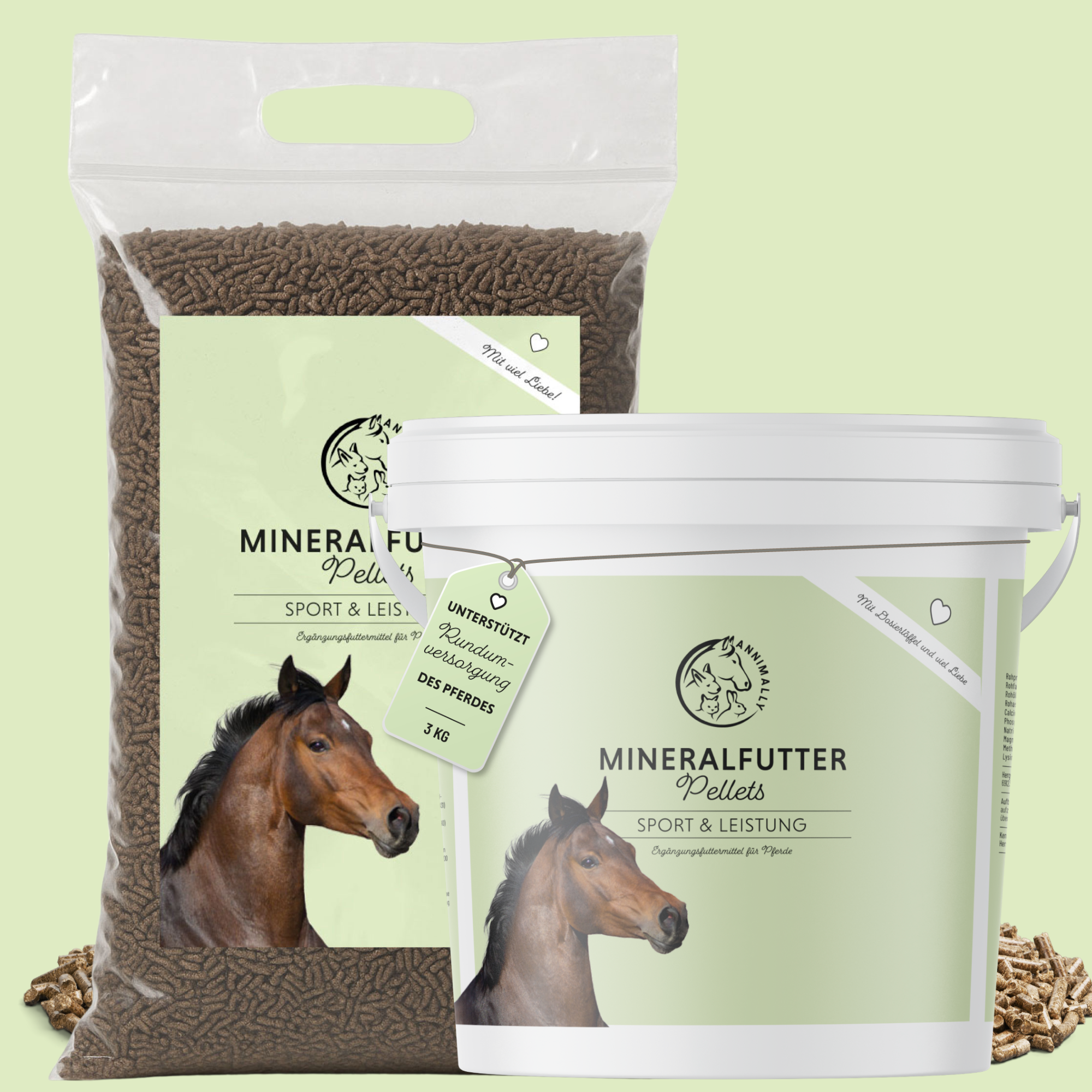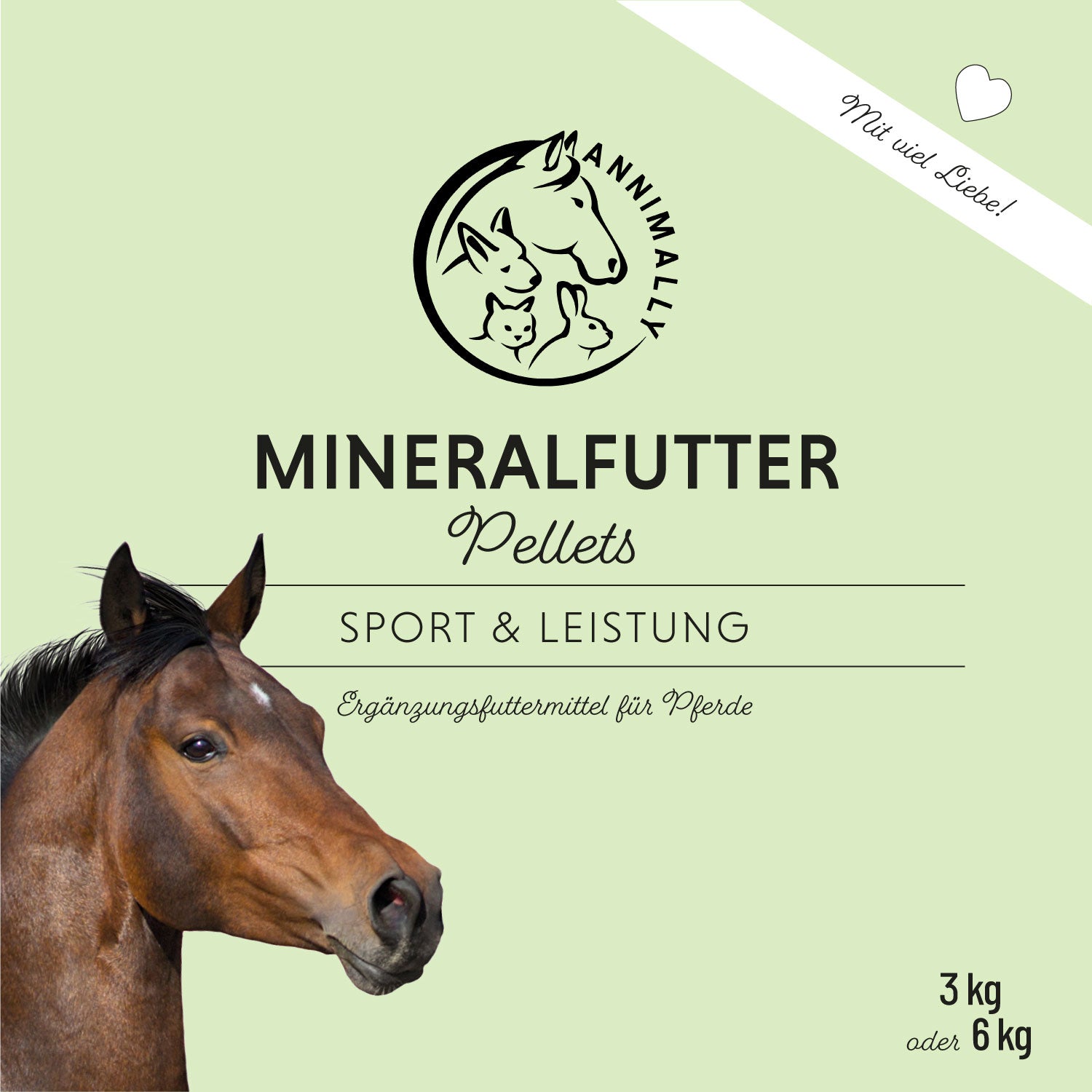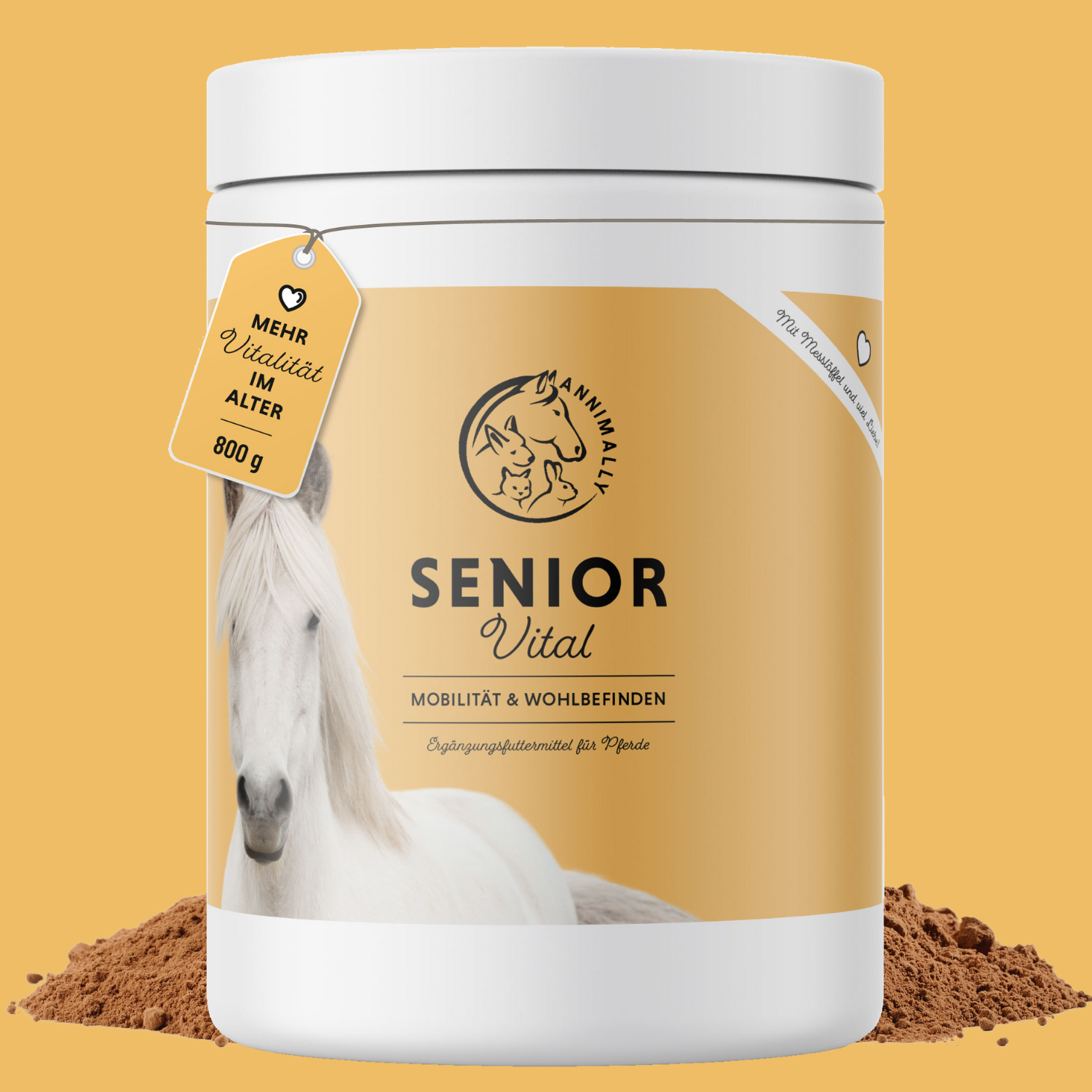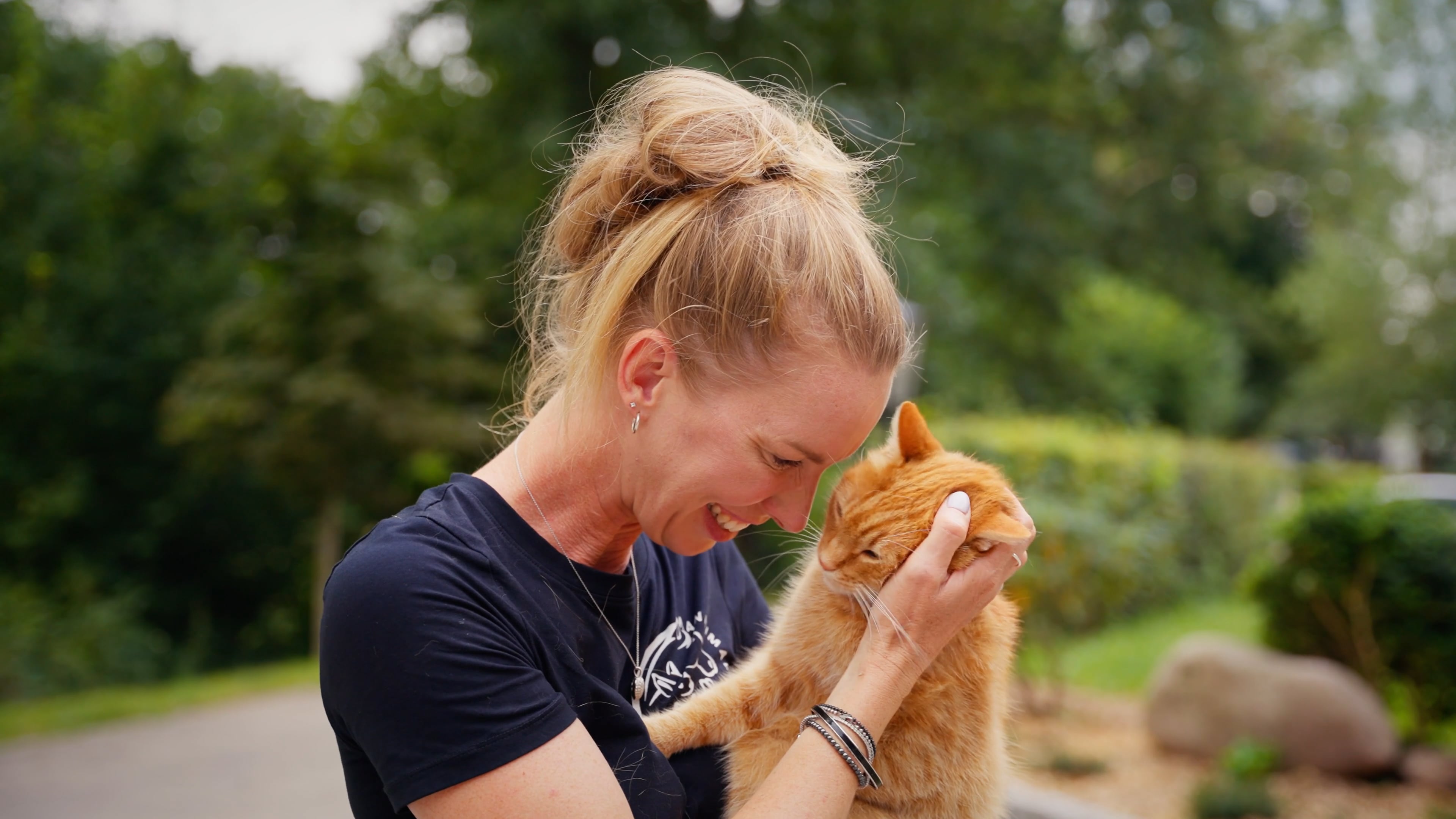Article: Chondroitin for Horses: Everything You Need to Know for Joint Health
Chondroitin for Horses: Everything You Need to Know for Joint Health
Your horse's joints are of central importance for its mobility and vitality. Joint health is a common issue, especially for horses that are actively involved in sport, but also for older animals that suffer from joint wear over the years.
If the cartilage is worn or inflamed, every movement becomes a strain and this can have a long-term impact on your horse's well-being and quality of life. The good news: with the right support, you can not only alleviate joint problems, but also prevent them. A proven nutrient for joint care is chondroitin sulfate.
In this article, you will learn exactly what chondroitin sulfate is, how it works in your horse's body and how you can use it specifically to support your four-legged friend's joint health.

What is chondroitin and why is it important for horses?
Chondroitin is a natural component of the cartilage tissue in the joints. Together with other substances such as glucosamine and hyaluronic acid, it is responsible for ensuring that the synovial fluid remains elastic and that the cartilage remains stable but also supple.
Chondroitin therefore plays a key role in the joint health of your horse, as it supports the cartilage substance and thus promotes the mobility and resilience of the joints.
The Benefits of Chondroitin for Your Horse
Chondroitin can offer many benefits for horses that are regularly in training, but also for older horses. The most important benefits are:
-
Reducing inflammation: Chondroitin helps reduce inflammation in the joints and promotes the production of anti-inflammatory substances.
-
Pain relief: Chondroitin can help reduce pain caused by joint wear and tear.
-
Promoting mobility: By supporting the cartilage tissue and synovial fluid, the horse remains more mobile and elastic.
-
Prevention of joint damage: Regular supplementation with chondroitin can help reduce the risk of joint damage and support your horse's long-term health.
Chondroitin for osteoarthritis and other joint diseases
Osteoarthritis is a common disease in horses, often caused by overuse or aging. Chondroitin can help with osteoarthritis by protecting the cartilage from further degradation and supporting regeneration.
Chondroitin can also help relieve symptoms and promote recovery in other joint diseases such as arthritis or inflammatory joint changes.
How does chondroitin work in the horse's body?
Chondroitin acts as a building block for cartilage and synovial fluid by storing water in the cartilage and thus maintaining its elasticity. It supports the formation of collagen and other important substances in the cartilage that are responsible for its structure and stability. This support makes the cartilage less susceptible to damage and wear, especially during intensive training or competition.
Chondroitin and Glucosamine: A strong team for your horse's joints
Chondroitin is often fed together with glucosamine, as both substances optimally support joint health. Glucosamine promotes the formation of new cartilage cells and is also important for synovial fluid. Together, chondroitin and glucosamine form a strong team that can prevent joint wear and promote the healing of joint problems.
When should you feed your horse chondroitin?
There are several situations in which supplementing chondroitin is particularly useful:
-
For older horses: As we age, the body's production of chondroitin decreases, which can lead to joint problems.
-
For athletically active horses: Horses that regularly train or compete often have a higher load on their joints.
-
For horses with joint diseases: If your horse already suffers from osteoarthritis, arthritis or other joint problems, chondroitin can support the therapy and relieve the symptoms.
How much chondroitin does a horse need? Dosage and feeding
The dosage of chondroitin depends on various factors, such as the weight, age and activity of the horse. As a rule of thumb, a daily dose of around 1000 to 5000 mg of chondroitin is appropriate for a large horse (600 kg). However, it is advisable to discuss the dosage with a veterinarian in order to best take into account the individual needs of your horse.
Chondroitin as part of a holistic approach
Chondroitin alone is not a miracle cure, but it can be an important part of a holistic approach to joint support. In addition to feeding chondroitin, you should also pay attention to a balanced diet, regular exercise and gentle training methods. In addition, inflammation can be reduced through appropriate rest periods and targeted stretching exercises.
What should you pay attention to when buying chondroitin for horses?
If you decide to buy chondroitin as a nutritional supplement for your horse, there are a few things you should consider:
-
Quality of the product: Make sure the chondroitin is high quality and pure. Low-quality products may be less effective and sometimes contain unwanted additives.
-
Composition and purity: Some products contain a combination of chondroitin and glucosamine. These combination products can be beneficial, but make sure that the contents of the product are dosed correctly.
-
Compatibility: Pay attention to how your horse reacts to the product and whether it is well tolerated. Some horses are sensitive to certain ingredients.
Conclusion: Chondroitin for a healthier horse life
Feeding chondroitin can significantly improve your horse's quality of life, especially as he gets older or is training intensively. By supporting cartilage health and reducing inflammation, chondroitin can make an important contribution to joint health. When you use chondroitin in combination with other joint care measures, you can help your horse stay active and healthy.
